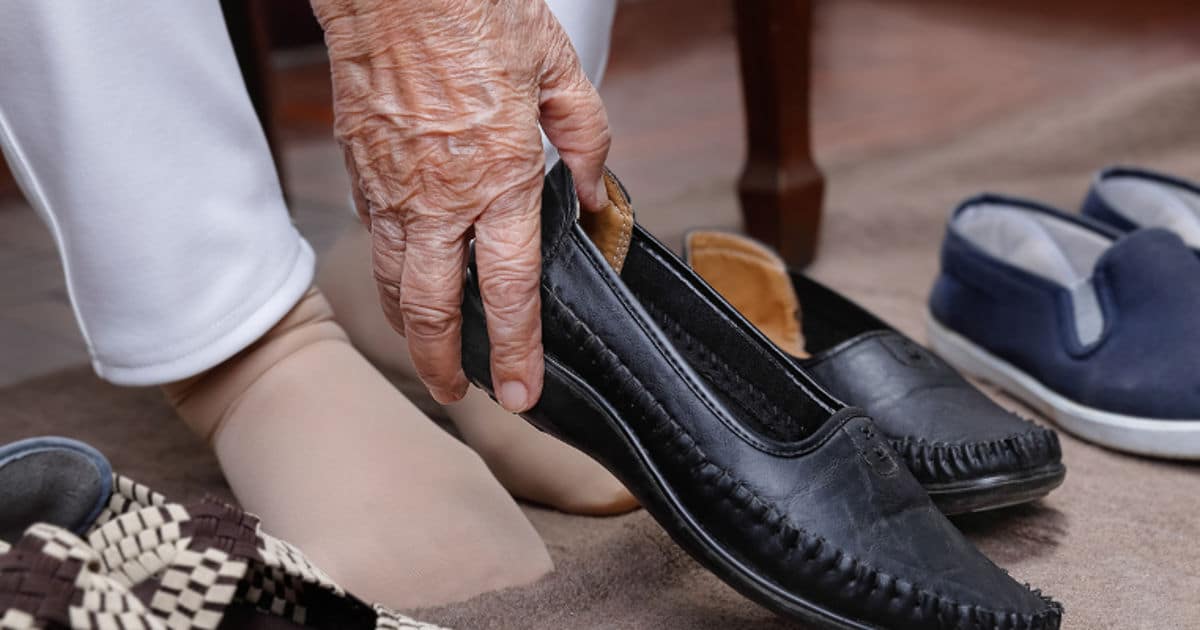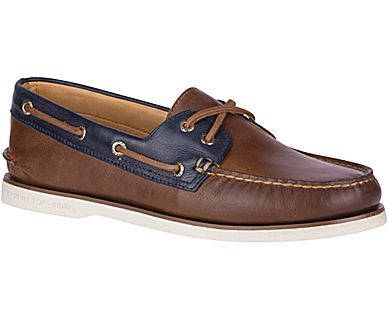When you’re caring for a loved one with dementia, it can be hard to know what to do. You want to make sure they’re safe, protected and comfortable.
Dementia patients tend to be more sensitive to changes in their environment, so the smallest change can cause them stress or confusion. When you’re trying to keep track of their medications and schedule appointments, it’s easy for things to get overlooked or forgotten.
It’s important for caregivers to find ways of making life easier for themselves and their loved ones. This may mean getting a new mattress or changing their eating habits, but there are other ways you can help them cope with dementia as well.
One way is by buying shoes that protect their feet from injuries or discomfort. For example:
An older person might trip over debris on the floor if they don’t wear shoes at all times — especially when they go outside or are walking around the house. Some people even forget that they aren’t wearing any shoes because they’re used to walking barefoot all day long (and throughout most of their life).
Walking around barefoot puts more pressure on your toes than wearing shoes does, which could lead to broken bones or sprains if you fall down while walking around without any protection on your feet
Right here on Buy and slay, you are privy to a litany of relevant information on best shoes for seniors with swollen feet, slippers for dementia patients, best shoes for nursing home residents and so much more. Take out time to visit our catalog for more information on similar topics.

The best shoes for seniors with swollen feet, slippers for dementia patients, best shoes for nursing home residents, anti fall shoes and so on. As you know, the elderly are more likely to be prone to injuries due to the fragile nature of their bones and muscles.
The best shoes for seniors with swollen feet:
The best shoes for seniors with swollen feet are those that are comfortable, flexible and lightweight. A good shoe will allow the feet to breathe and not feel constricted. Wearing sweat-absorbing socks is also a great idea as this will prevent your feet from getting sweaty and smelly after wearing them for long periods of time.
Dementia is a disease of the brain that causes memory loss and other intellectual abilities. It’s not a normal part of aging, and it can be very hard to diagnose.
Dementia patients can have trouble with balance and coordination, which can make it difficult to walk safely. A good pair of shoes can help stabilize their gait and prevent injuries.
Here are some tips for selecting shoes for dementia patients:
1. Choose shoes with thick soles for added stability.
2. Avoid open-toe shoes because they can catch on edges and trip someone who has balance problems.
3. Look for slip-resistant soles to reduce the risk of falls on wet surfaces or uneven terrain like stairs or curbs.
4. Choose shoes that fit well and don’t pinch or rub against any toes or other areas of the foot, which could lead to blisters or sores that could become infected (5).

Shoes for seniors with swollen feet
If your loved one is experiencing swelling in their feet, it may be time to look at some shoe options. A good pair of shoes that are roomy enough to accommodate the swollen ankles and feet will help prevent injury and pain.
Slippers for dementia patients
Many people who suffer from dementia or Alzheimer’s disease have trouble sleeping. This can be due to a number of reasons, including anxiety or pain. A pair of slippers can help keep your loved one comfortable and warm at night, allowing them to sleep better.
Best shoes for nursing home residents
If your loved one is living in a nursing home or assisted living facility, they may be restricted to wearing certain types of shoes by their doctor or medical staff. It’s important that the shoes they do wear are comfortable and supportive, as well as easy to clean and maintain on a daily basis.

I have a mother who has Alzheimer’s and she is in a nursing home. She needs to wear shoes that are easy to put on and take off. She also needs shoes that are comfortable, as she spends most of her day in bed. The nursing home has been having a hard time finding the right pair of shoes for her.
I am not sure how many people with dementia need shoes like this but it seems like they would be helpful for some people.
I have been looking online and I have found several companies that sell anti-slip slippers for seniors with swollen feet, but I am not sure if these would work well for my mother. I would like to find some slippers that will fit her feet correctly and are comfortable enough for her to wear all day long.
The best shoes for dementia patients are comfortable, easy to put on and take off, and waterproof.
The first thing to consider is the fit. Dementia patients can have trouble bending over to tie their shoes, so it’s important that they can slip them on easily. A Velcro strap or other fastening device is a good option because it allows you to adjust the fit as necessary. A second important consideration is waterproofing; dementia patients may have a tendency toward incontinence, so it’s important that their shoes be stain-resistant.
If your loved one has dementia and is prone to falling, you’ll want to choose a shoe with good traction and a secure heel that won’t slip off easily. We’ve found that our favorite brand of slippers for dementia patients is Zootility’s Slipper Sheets — they’re very soft and comfortable, and they come in several colors and styles (including some with Velcro straps).
/VW-Fit-v2-The-8-Best-Walking-Shoes-for-Plantar-Fasciitis-of-2021-4580210-primary-9f7293c899ab4f4c93b7f91a5d16c02d.jpg)
Senior shoes are usually sturdy and supportive, but they can be hard to get on and off, especially if you have arthritis or poor dexterity.
Slippers are readily available in home care stores, medical supply stores and online. They offer a soft sole to protect your feet from hard surfaces, while still being easy to put on and take off
There are many kinds of anti-slip shoes:
Anti-slip socks — These are the standard for people with dementia who have a tendency to fall. The soles have a texture that makes them grippy when wet or dry. They come in men’s and women’s styles and different lengths. Some also come with grips on the bottom of the sock so that you can wear them with regular shoes.
Anti-slip insoles — If your loved one has bare feet that tend to slip out of their shoes, these insoles will help keep them in place. They come in several sizes (you should measure your loved one’s foot before purchasing) and include grips on both sides of the foot bed as well as on top of it. They also add some padding if your loved one has sensitive feet or is diabetic.

Dementia is a disease that affects the brain, causing loss of memory and other intellectual abilities. It’s a progressive illness that gets worse over time. There are many types of dementia, but Alzheimer’s is the most common type.
Dementia can affect anyone at any age, including seniors and people with Alzheimer’s or other diseases that affect the brain. The symptoms of dementia include:
Memory loss that disrupts daily life. You may not remember recent events or learn new information as you did before, and your memory for names, dates and current events may be impaired.
Changes in personality or behavior. Dementia patients may become agitated or withdrawn, suspicious or paranoid about certain things, have difficulty with communication skills and make poor decisions about money management.
Loss of sense of direction. You may get lost in familiar places, such as your own home or neighborhood streets, making it difficult to drive safely or go out alone without supervision.

The best shoes for dementia patients will be comfortable, supportive and easy to wear. However, there are some other factors to consider when choosing the right shoes for your loved one.
Dementia is a progressive condition that affects memory and cognitive abilities. It’s estimated that around 850,000 people in the UK have dementia, with the number expected to rise to more than 1 million by 2025.
There are many types of dementia, but Alzheimer’s disease is the most common form. The symptoms of Alzheimer’s include confusion, memory loss and difficulty with reasoning and problem solving.
Your loved one may also experience mood swings, agitation, aggression and wandering behaviour as their brain deteriorates. They may also become more dependent on you for support as their mobility declines.
Dementia is a progressive, degenerative brain disease that affects the ability to learn, remember, and think clearly. Dementia can occur as the result of Alzheimer’s disease, stroke, or other health problems.
The symptoms of dementia vary depending on the type and severity of the disease. But one thing is certain: People with dementia need special care.
Because they can no longer dress themselves or remember how to walk properly, they may not be able to go out in public without help. They also need assistance with daily tasks like bathing and cooking.
Dementia patients often rely on family members and caregivers to provide them with daily care. While caring for someone who has dementia can be challenging at times, it can also be rewarding — especially when you see their progress and improvement in their health and well-being.



